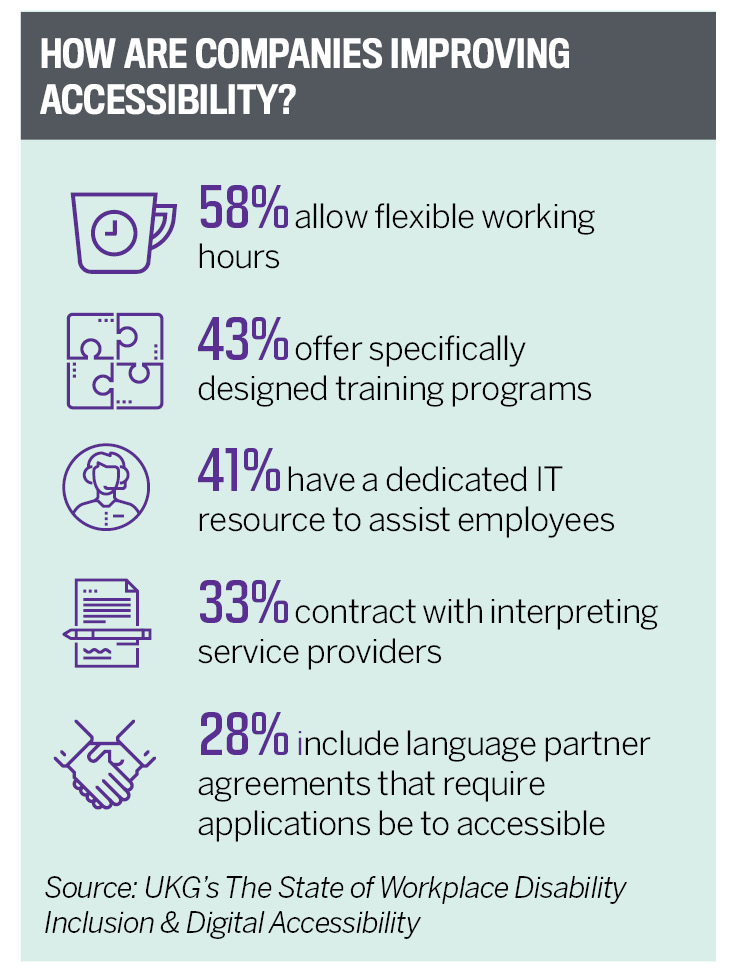
COVID changed the way we view organizational inclusion

If anyone is well-positioned to champion people with disabilities, it’s Jewelles Smith. As a feminist disability activist, scholar, writer, with specific training in human rights monitoring and women’s human rights justice and communications and government relations coordinator of the Council of Canadians with Disabilities, Smith is a voice for Canadians.
“The first thing to always notice,” she told HRD when asked about particular challenges that people with disabilities might face at work, “is that disability is very diverse. For example, a person who is hard of hearing will experience different challenges than a person who has a physical disability. What we often hear is that people are afraid to ask for the support they need. As such, they don't disclose the issues they have - and then they struggle. Unfortunately, employers are sometimes afraid to hire somebody with a disability – creating a huge barrier to employment. In reality, there’s a lot of benefits to hiring employees with disabilities.”
Read more: Black Canadians believe HR is stamping out racism – but more work needs to be done
UKG recently received a prestigious award for their commitment to hiring employees with disabilities. Having received a perfect score of 100% on Disability:IN’s Disability Equality Index, UKG knows a thing or two about the benefits of diverse hiring. For instance, a report from the Institute of Corporate Productivity found that three in four employers ranked employees with disabilities to be just as good or even better than their colleagues. Further to that, McKinsey and Company's research highlighted that companies that hire diverse and differently-abled workers enjoy increased revenues of up to 35%.
“Living with a disability kind of forces us to be creative,” Smith told HRD. “People with disabilities are often amazing problem solvers. They can be really innovative, thinking differently about how to find solutions. Not only do they bring that creativity, but when an employee finds an employer who's willing to accommodate them, they're very loyal. They will inevitably stay long periods of time with the same organization.”
Thanks to activists like Smith, progress is continually being made. Awareness of disability issues is being heightened – however, accessibility continues to be a problem in Canada. As well, the pandemic presented its own unique set of challenges for employees with disabilities – issues around remote working accommodation, vaccine requirements, and job uncertainty made for an uncomfortable year. Now, as employers look to reopen offices and workplaces, Smith explained that employees with disabilities will need more or different accommodations in order to resume their roles comfortably.
“To foster a culture of accessibility in the workplace, leaders need to reassess their COVID protocols,” she told HRD. “For example, how can a blind employee follow the ‘one way’ directional system indicated on the office floor? How can an employee who uses a wheelchair or a mobility device navigate plexiglass set-ups?”

Another major accessibility issue for Canadians returning to their offices is the presence of guide and service dogs. As Smith told HRD, her service dog has been at home with her all over lockdown – away from the public – meaning he needs retraining before she can return to work. As for the future of accessibility in Canadian workplaces, Smith hopes that progress continues – quickly and decisively.
In a recent whitepaper from UKG, entitled The State of Workplace Disability Inclusion & Digital Accessibility, researchers found that 85% of employees believe their company’s efforts to address disability inclusion are ‘above average.’ In fact, 51% of managers believe COVID has accelerated their organization’s ability to accommodate workers with disabilities. What’s more, 78% of employees believe that accommodation of employees with disabilities will be better than it was pre-pandemic - something that Smith hopes will come to fruition sooner rather than later.
“Moving forward, I hope Canadian employers will be more open to hybrid working situations,” she added. “I've been pushing really hard for employers this last year and a half to think about the many ways our entire population has been working and be open to those creative ideas continuing.”
Read more: Virtual health in remote work: How telemedicine is set to change employee benefits
This feature was released as part of UKG’s exclusive magazine. Discover what HR teams can expect from 2022 and beyond and learn strategies for the new era of work here.